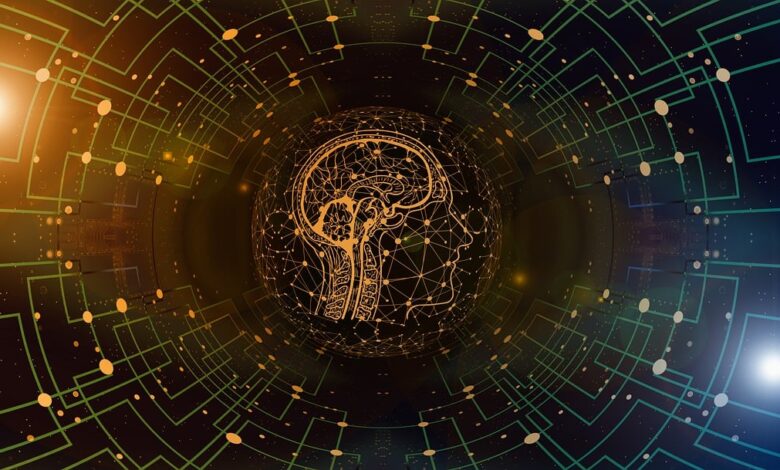A Balanced Look at the Advantages and Disadvantages of Artificial Intelligence

Artificial Intelligence (AI) stands at the forefront of technological innovation, permeating various aspects of our daily lives. From virtual assistants to predictive analytics, AI continues to reshape industries and societies. However, alongside its remarkable advancements come discussions regarding its potential benefits and drawbacks. In this blog, we embark on a journey to explore both sides of the AI coin, shedding light on its advantages and disadvantages.
AI’s increasing presence in our lives prompts reflection on its implications for humanity. While proponents champion its transformative potential, skeptics raise concerns about its societal and ethical ramifications. Our purpose here is not to advocate for or against AI but to provide a comprehensive analysis of its multifaceted nature.
Advantages of Artificial Intelligence
Increased Efficiency and Productivity
One of the most prominent advantages of AI is its ability to automate tasks, significantly improving efficiency and productivity across various sectors. AI-powered systems can handle repetitive and mundane tasks with greater speed and accuracy, freeing up human resources for more complex and creative endeavors.
For instance, AI-driven robots in manufacturing facilities can perform assembly line tasks with remarkable precision and efficiency, while logistics companies utilize AI-powered algorithms to optimize delivery routes, saving time and resources. Moreover, customer service chatbots powered by AI can answer simple inquiries and troubleshoot basic issues, freeing up human customer service representatives to handle more intricate concerns.
Improved Decision-Making
By analyzing large datasets, identifying patterns, and making data-driven predictions, AI empowers organizations and individuals to make informed decisions in various fields.
For example, in healthcare, AI-powered analytics can analyze medical images and patient data to assist in early disease detection and personalized treatment plans. Similarly, financial institutions leverage AI algorithms to assess creditworthiness and predict market trends, enabling them to make sound investment decisions. Furthermore, AI is making strides in the marketing sector, allowing businesses to personalize marketing campaigns based on individual customer preferences and behavior patterns, leading to increased campaign effectiveness.
Reduced Risks and Errors
AI excels in performing tasks that are inherently dangerous or prone to human error. In hazardous environments like bomb disposal or deep-sea exploration, AI-powered robots can navigate these challenges with minimal risk to human life. Additionally, in the medical field, AI-assisted surgical robots can perform minimally invasive procedures with superior precision and consistency, potentially shortening recovery times and improving patient outcomes.
Moreover, AI algorithms are increasingly used to analyze complex data sets and identify potential anomalies in various sectors, leading to the prevention of errors and the mitigation of potential risks.
Enhanced Innovation and Creativity
While often associated with replacing human jobs, AI can also act as a powerful tool for augmenting human creativity and innovation. In research and development, AI can analyze vast libraries of scientific data and identify potential research avenues that might be missed by human researchers. This can lead to the development of new materials, drugs, and technologies that were previously unimaginable. Additionally, AI-powered tools are emerging that assist artists and designers in their creative endeavors, allowing them to explore new artistic styles and generate fresh design concepts.
Disadvantages of Artificial Intelligence
Job Displacement and Unemployment
One of the primary concerns surrounding AI is its potential to automate jobs currently held by humans, leading to widespread unemployment and economic disruption. While AI is creating new opportunities in some sectors, it is also displacing workers in others, particularly those involved in repetitive and routine tasks. This raises significant concerns about the future of work and the need for workforce retraining and reskilling initiatives to equip individuals with the skills necessary to thrive in an AI-powered economy.
Ethical Concerns and Bias
AI algorithms are only as good as the data they are trained on. If biased data is used to train AI systems, they can perpetuate existing societal biases and discriminatory practices. This could lead to unfair outcomes in various areas, such as loan approvals, hiring decisions, and criminal justice. Therefore, it is crucial to ensure fairness and transparency in AI development, implement measures to mitigate bias, and ensure that AI systems are used ethically and responsibly.
Lack of Human Judgment and Empathy
AI systems, despite their advancements, cannot understand human emotions and make complex ethical judgments in nuanced situations. This poses a challenge in areas like healthcare, where decisions have a profound impact on human lives and require empathy and compassion. Additionally, in fields like law enforcement and self-driving cars, relying solely on AI algorithms for decision-making raises ethical concerns, as AI may struggle to navigate complex ethical dilemmas that require human judgment and emotional intelligence.
Security and Privacy Risks
As AI systems become more sophisticated, concerns regarding their potential misuse for malicious purposes also rise. AI could be used to launch cyberattacks, manipulate financial markets, or even develop autonomous weapons. Additionally, the vast amount of data collected and analyzed by AI systems raises privacy concerns. Ensuring robust cybersecurity measures and implementing ethical frameworks for data collection and usage are crucial to mitigate these risks and build public trust in AI.
Conclusion
AI presents a double-edged sword, offering unparalleled opportunities for advancement while posing significant challenges. Responsible development and deployment of AI are essential to maximize its benefits while mitigating its drawbacks. By fostering ethical AI practices and prioritizing human-centric solutions, we can navigate the complexities of AI with integrity and foresight.
FAQs
What are the primary advantages of artificial intelligence?
AI offers numerous advantages, including increased efficiency and productivity through task automation, improved decision-making with data-driven insights, reduced risks and errors in high-risk tasks, and enhanced innovation and creativity by augmenting human capabilities.
What are the main concerns associated with artificial intelligence?
Key concerns revolve around job displacement and unemployment due to automation, ethical considerations such as bias in AI algorithms, the lack of human judgment and empathy in AI systems, and security and privacy risks stemming from the potential misuse of AI technologies.
How can businesses harness the advantages of AI while mitigating its disadvantages?
Businesses can leverage AI to optimize processes, improve decision-making, and drive innovation, but must also prioritize ethical AI development, invest in workforce retraining and adaptation, ensure human oversight in critical decision-making processes, and implement robust cybersecurity measures to safeguard data privacy.
What steps can individuals take to prepare for the impact of AI on the job market?
Individuals can future-proof their careers by acquiring skills that complement AI technologies, fostering adaptability and continuous learning, and seeking opportunities for interdisciplinary collaboration to leverage AI’s capabilities effectively in their respective fields.
How can society ensure equitable access to the benefits of AI while addressing its potential drawbacks?
Society must prioritize inclusive AI development that considers diverse perspectives and experiences, advocate for transparent and accountable AI systems, and engage in ongoing dialogue to navigate the ethical, social, and economic implications of AI responsibly.
If you want to deepen your knowledge of Artificial Intelligence and learn from scratch, you can take our free course on Artificial Intelligence.






